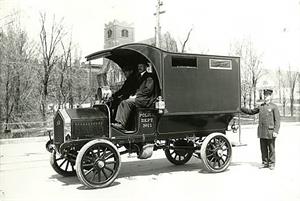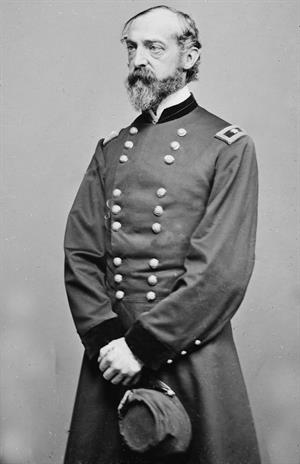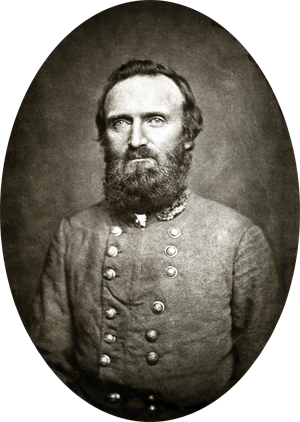
PUMPA - SMART LEARNING
எங்கள் ஆசிரியர்களுடன் 1-ஆன்-1 ஆலோசனை நேரத்தைப் பெறுங்கள். டாப்பர் ஆவதற்கு நாங்கள் பயிற்சி அளிப்போம்
Book Free DemoThe narrator begins the story by establishing the setting, introducing some of the major characters, providing the plot, and setting the mood of the story. As the narrator explains, the incident that the narrator recounts took place on the night of November 17, 1915. Given that the book My Life and Hard Times is credited as an autobiography and that James Thurber was born in 1894, it is safe to assume that the narrator was about 21 yrs old at the time of the incident. Also, the year 1915 has a historical reference; it is the period of World War I.
World War I was an international war that lasted from July 28, 1914, until November 11, 1918. It was one of the worst conflicts in the history of the human race. Statistics show that over 9 million people were killed in the warfare, while over 5 million died due to military occupation, bombings, disease, or hunger. The Ottoman genocides and the 1918 Spanish flu pandemic, which was spread by the movement of troops during the war, resulted in the deaths of many more millions worldwide. Hence, it could be understood that the war must have led to massive paranoia and delusions in people. This could also have been the reason for the narrator and his family reacting to the incident in a particular way.
It is evident from the firstparagraph that the story that the narrator was about to narrate consists of some strange events. To begin with, it is a ghost that is at the centre of the entire incident. The narrator claims that the ghost that entered his house on November 17, 1915, caused such a series of misunderstandings.
The paragraph suggests that the narrator was the one who had spotted the so-called ghost. It is also apparent that the narrator had alerted his family about its presence but eventually regretted having done so, for he says, "I am sorry I didn’t just let it keep on walking, and go to bed."
The narrator also further explains why he feels so; he says that the news of a potential ghost prompted his mother to throw a shoe through a window of the house next door. The paragraph also suggests that the police was involved. And to make things worse, the entire incident subsequently resulted in his grandfather shooting a police officer.
Finally, the narrator ends the paragraph by apologising (again) for the events that had unfolded and paying attention to "the footsteps" in particular. The last line of the paragraph hints that the footsteps that the narrator had heard and the ghost that had supposedly got into his house are linked.
As the 2 nd paragraph of the story begins, the narrator gets into narrating the incident. To recall, the narrator had stated in the previous paragraph that he had heard footsteps that had led to certain unfortunate events. So, in the 2nd and the rest of the paragraphs, we see how those events unfold.
Talking about the footsteps, the narrator said he heard them about 1.15am, the quietest, darkest time of the night. He felt someone (or something) strolling around the dining room table "in a rhythmic, quickcadenced" manner. Here, one could observe that the narrator was trying to describe the footsteps that he had heard. He doesn't have a face to associate it with as he never saw who walked around. Nevertheless, his description of the sound is acute. He says that the footsteps were quick and had a rhythm to them. Note that the word cadence refers to the modulation of a sound, which describes its regular rise and fall. The description of the footsteps could suggest either of the following two possibilities (or even both). Firstly, the owner of the footsteps was walking around the dining room multiple times. It wouldn't have created so much of a "cadence" if he had walked around only once. Secondly, there is a possibility that the owner was probably old, limp, or weak. For instance, when a person limps, the footsteps are likelier to rise and fall.
The following video demonstrates a man limping.
- his mother was asleep in a room upstairs,
- his brother-Herman was settled down for the night in another room,
- and his grandfather was sleeping in the attic, in the ancient walnut bed that had once fallen on his father.
So, coming back to the story, we see the narrator stepping out of his bath while his family is seeping. He was busy drying himself with a towel when he heard the footsteps. The narrator could hear the person walking quickly around the dining room downstairs. The dining room downstairs was reasonably visible from where he stood because the light from the bathroom shone down the back-steps. He could see the faint shine of plates on the plate-rail, but the table was hidden from the sight. He realised the footsteps were going around the table (multiple times) because he heard a particular floorboard creak at regular intervals.

Initially, the narrator didn't make much of the footsteps. He merely assumed that his father and brother Roy had returned from their trip to Indianapolis. (Note: Indianapolis is the capital city of Indiana. The narrator and his family live in Columbus, the capital city of the neighbouring state Ohio.) But later, something must have told him that it was neither of them. So he suspected that there was a break-in and that the footsteps belonged to a burglar. But his assumptions never ended there, for he ends the paragraph by claiming that he eventually realised it wasn’t a burglar but a ghost.


'Awp,' Herman whispered, in a sad beagle's low, despairing tone. The narrator says that Herman always had a feeling that something would 'get him' in the night. So, to prevent Herman from getting all worked up, the narrator explained to his brother that it was he who had roused him. He further explained why he had woken his brother in the wee hours.
The narrator was visibly scared, given that he had an ill feeling about the footsteps. So, he cried out, stating that there was something downstairs. Herman, by then, was awake. He stood up and followed the narrator to the entrance of the back-stairs. However, by the time the duo got near the staircase, the footsteps had stopped. Herman gave the narrator a startled look; he must have thought that the narrator imagined things. Also, the latter wasn't dressed as he only had a bath towel draped around his waist. The scene must have looked ridiculous in the eyes of Herman, for he soon tried to return to bed. But the narrator stopped Herman by grabbing his arm.
The light still shined dimly down the stairwell; nevertheless, they could see nothing and could only hear the footsteps. Herman, by then, had realised that his brother was right. Convinced that it was a ghost, and out of fear, the boys ran. Herman sprang to his room and slammed the door behind him. The narrator shut the top stair door and pressed his knee against it. (Some sources say that the narrator ran to the bathroom to hide.*) After about a minute, he cautiously opened the door. To the better or worse, he saw nothing. There was silence and no sign of a figure or sound of footsteps. The ghost has mysteriously vanished. The narrator observes that neither he nor his family had seen or heard the ghost again.
It is essential to know the house's structure to understand the story. In "The Night the Bed fell", the first of the nine stories, the narrator describes the rooms' layout. He says,
Back to the story, we see the mother glancing out of her bedroom, demanding what her sons were doing late in the night. Herman comes out of his hiding, telling her that it was 'nothing' in a 'gruff' tone that suggests he was both scared and anxious. He probably decided to keep his mother in the dark about the "ghosts" as the latter tended to get worked up or become hysterical.
Though Herman had displayed the courage to come out of his room, "the presence of a ghost" visibly shook him. His skin had turned almost light green, says the narrator. Going or turning green suggests that someone looks ill or frightened in a figurative sense.
Mother wasn't convinced with Herman's answer, for she soon retorted, enquiring about the commotion downstairs. She asked, ‘What was all that running around downstairs?’
The boys were shocked in learning that she'd heard the steps as well. This further proved that the footsteps weren't figments of their imagination. But they were in a tight spot as they couldn't reveal that the house was possibly haunted. So they merely stood staring at her.
Mother immediately decided that there was a break-in. So she shouted, 'Burglars!'. The narrator wanted to calm her down. So before she could turn frenzy, he decided to go downstairs to investigate. He took a step slowly while calling out his brother to accompany him.

But Herman backed out, stating that his mother needed company. Citing that their mother was all worked up, he said ‘he would stay with her'. He might have wanted to stay back for either of the two reasons: as said, he didn't want to leave his mother alone. Or, he didn't dare to go downstairs and face the "ghost".
Herman's response suggested that the narrator would have to go alone. However, the latter probably deduced that it wasn't wise to encounter a potential ghost all by himself. So, he took the step back onto the landing.
In this paragraph, we see their mother barring them from going downstairs. She says, "Don’t either of you go a step", although it is unlikely that the duo would have gathered the courage to venture downstairs. She then suggests that they should call the police instead.
The narrator wondered how they would call the police without stepping down as the phone was placed downstairs. The narrator also explains that he didn't want to involve the cops, as he was aware that there wasn't any break-in. But, mother was determined to call the cops and had even found a way to do that without going to the ground floor. So, before the narrator could share his thoughts, mother swiftly went to her bedroom, pulled open her window that faced the bedroom windows of a neighbour's house, picked up a shoe, and threw it across the neighbour's window. The narrator explains that the mother was able to achieve the feat quite effortlessly because the space between the two houses was reasonably narrow.

Mother threw the shoe across, despite knowing that her action would destroy the neighbour's window. As she achieved the feat, Mr Bodwell and his wife (the neighbours) woke up to the sound of glass crashing. Mr Bodwell was a retired engraver. The narrator says that Mr Bodwell had been in a bad way for a long time and had suffered from minor 'attacks' from time to time.
The narrator observes that almost everyone they knew or lived around had some kind of "attacks".
Bodwell was at the window in a flash, yelling, frothing a little, and shaking his fist. As expected, he was angry. Mrs Bodwell could also be heard saying, 'We’ll sell the house and go back to Peoria'. While Mr Bodwell's reaction can be considered spontaneous and natural, for anybody in his position would have reacted similarly, Mrs Bodwell's reaction has a humorous undertone. Without proper investigation as to what or who had caused the wreckage, she immediately suggested that they should sell the house and move back to Peoria.
Peoria is a city in Illinois, a state in the Midwestern region of the United States. It is also relatively closer to Ohio, with Indiana situated between the two states. The line "go back to Peoria" suggests that the Bodwells have probably moved from Peoria and that Mrs Bodwell feels more at home there than in their home in Ohio.

When the mother tried to inform Mr Bodwell about the burglars, he initially thought there was a break-in in his home. However, he eventually calmed down and called the police from an extension phone next to his bed. He later went back inside.



One could see where the narrator's concern lies. It wasn't merely that the police came too soon; there were also too many of them.
As they arrived, they started pounding on the narrator's front door. Flashlights cast gleaming streaks over the walls, across the yard, and down the path between their house and Bodwell's. One of the police officers called out hoarsely, asking them to open up the front door. The policeman also stated that they were men from Headquarters.
Despite the narrator's concern, he still had wanted to go down and open the door to let them in. One could see that the narrator was a man of manners. However, his mother was worried that he would catch a cold as he wasn't appropriately dressed. 'You don't have a stitch on, and you'd catch your death,’ she observed. The word "stitch" refers to any form of cloth here. The mother was trying to emphasise the point that he was almost naked. As a result, he wrapped the towel over himself once again.
Since the narrator nor his family couldn't open the front door, the police decided to break in. They pushed against the large, heavy front door with thick bevelled glass and broke it open. The narrator could hear a rending of wood and a splatter of glass on the hall floor. The movement of the police is observed through the flashlights that streaked around the house. He says, "their lights played all over the livingroom and crisscrossed nervously in the dining-room, stabbed into hallways, shot up the front stairs and finally up the back." So, they moved from the living room to the dining room, from there to the hallways, and then up the stairs.
At the top, they caught the narrator standing with a towel wrapped around him. A large police officer dashed up the stairwell. Being an officer, he asked the narrator who he was in an authoritative voice. The narrator answered that he lived there, implying that he was a part of the family and was no intruder.


The mother, recalling the slamming of the doors that awakened her, declared that there were two or three of them. She concluded that there was more than one intruder because she had heard two or more doors shut simultaneously. As you would remember, Herman and the narrator had shut their doors in their agitated state.
The cop found the mother's statement hard to believe, for he said, 'funny, all your windows and doors were locked tight as a tick on the inside.' He suspected that there wasn’t a break-in because the doors and windows were locked from the inside.

The paragraph is unique, and even intriguing, because of the language of the officer in charge. It is easy to observe that the English spoken by the officer is different from the English used by the rest of the characters. The officer seems to be quite liberal with his use of English. He defies English grammar and standard pronunciation.
The officer speaks in non-standard English that varies depending on where it is spoken. It contains a lot of slang (extremely informal versions of standard terms) specific to a particular place or set of people and hence may not be understood or used by everyone. It is a colloquial variant of standard English.
Sl.No | The Officer's English | Standard Version | Remarks |
1. | No sign of nobody, lady | No sign of anybody, lady | A sentence shouldn't contain a double negative. Eg; "No" and "Nobody" |
2. | Musta got away. | Must have got away. | While the standard contraction of "have" is "'ve" (as in I've), it is uncommon and informal to contract it to "a". |
3. | Whatt’d he like? | What was he like? | The exact translation of the question is "What did he like?". However, the statement is grammatically incorrect. |
4. | All ya windows and door was locked on the inside tight as a tick. | All your windows and doors were locked on the inside tight as a tick. | Non-standard contraction (ya) and incorrect grammar (door, was). |
The narrator begins by claiming that he could "hear" the officers "tromping" about. The word "tromp" suggests a heavy footstep, probably because of the boots the police were wearing. Then he describes how the doors and drawers were "yanked" open, windows were "shot" up and down, and furniture "fell with dull thumps". The words "yanked", "shot up", and "thumps" describe not just actions but the actions that are accompanied by sounds. He could also make out through the noises that the police were all over the house.
Later, a half-dozen police officers climbed upstairs to where the narrator was standing. It is interesting to note the phrase “a half-dozen” here. The narrator could have simply said that there were about six police officers. (A dozen is 12, and half of it is 6.) Instead, he chose an alternative that evokes a bigger number. The narrator wanted to emphasise the point that there were too many of them.
One might also wonder why the police had to emerge from the darkness and use so many flashlights when all they could have done was flick the switch to turn on the lights. The reason could be that electricity was more of a luxury in the early 1900s. We are sure that the narrator's house had an electricity connection as he had spoken about it in one of the previous stories, "The Car We Had to Push", from the collection My Life and Hard Times. It was majorly used as a source of light. However, being a luxury, people sparsely used it, and hence, the house isn't likely to be well lit.
Back to the story, the police are thoroughly searching the house. 'They began to ransack the floor, pulled beds away from the walls, tore clothes off hooks in the closets, and pulled suitcases and boxes from shelves.’ Here, one could observe that the details presented by the narrator are strikingly visual. He can see, and not just hear, what they were doing. He is reasonably specific about what had been happening: the police pulled out clothes from the cupboards, searched the floor rather heavily, moved beds away from the walls (so that they could look under the beds and also search the corners of the room), and even brought out the suitcases and other storage boxes stored away in shelves. In short, they turned the whole house upside down in searching nook and corner of the house.
So, while searching through the house, a policeman found an old zither. It belonged to the narrator's younger brother, Roy, who, as we have seen previously, is on a trip to Indianapolis with his father. He had won the zither in a pool tournament. In a whimsical sense of humour, the narrator observes how the policeman plays it, or rather strums it, with a "big paw". The phrase "big paw" sufficiently describes how inefficient and clumsy was the policeman with the instrument. Also, since the narrator described the instrument as old and forgotten, Roy may have won it in a childhood tournament. As a result, it is more likely that the zither was smaller (and toylike) than the traditional instrument. It explains the following two ideas: firstly, the policeman played the instrument poorly. Secondly, the instrument felt too small at the hands of the policeman.
Back to the story, the policeman asks a fellow policeman named Joe to take a look at the zither. The entire scene involving the policeman and the zither is comical yet mildly philosophical. It is humorous because one could see that the officer who seemed involved in the search got quite detracted when he saw a small, irrelevant artefact. On the other hand, the scene reminds us how there is a child in every adult; the police officer became all too excited and childlike when he saw the zither.
So, we see that Zoe has taken the zither and is looking it over. 'What is it?' he inquired, to which the narrator explained that it was an old zither that their pet guinea pig used to sleep on. The narrator asserts that their pet guinea pig would never sleep anywhere else, but he soon regrets saying so. Joe and the other policeman exchanged long looks with the narrator. They then returned the zither to its shelf.
There could be several reasons why the police officers stared at the narrator, yet, the narrator mentions none. Nevertheless, one could see that it was the mention of a guinea pig using the zither as a bed that had triggered the response. Could it be that the officers considered the zither to be unhygienic? Guinea pigs tend to eat all day, and due to that, they also excrete more than other animals. So, if the zither happened to be the pet's home, it was likely that the zither might have become its lavatory. That could explain why the police officers seemed disturbed.


 General Meade**
 Stonewall Jackson*** |

